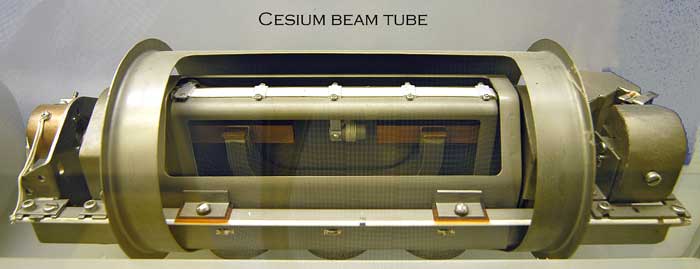Atomic clocks
Atomic clocks are the most accurate clocks currently in existence, using the universally consistent oscillations of atoms to generate a frequency to keep time. They use Cesium, Hydrogen, or Rubidium, with Cesium being the preferred element, used in the United States Naval Observatory master clock, among others. Not only are these clocks potentially accurate to a nanosecond per day, but their results are completely reproducible.

The Coordinated Universal Time is the time scale used for civil purposes worldwide. It is based on 200 different atomic clocks, and is the standard for most communications. Since it keeps better time than the rotation of the Earth does, it has been manually adjusted by seconds (called leap seconds) to prevent it from becoming non-representative of the day as we know it. Since 1972, 25 seconds have been added to account for the Earth's slowing rotation.
Previous Next